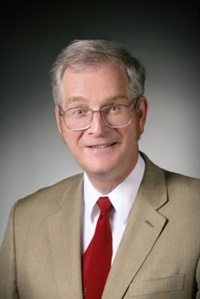Total Credits: 3 including 3 AOA Category 1-A Credit(s)
Growing Up isn't for the Faint of Bladder: Urologic Concerns in Geriatric Patients-Matthew Uhlman, MD
A common adage in Urology is, "It's not if you'll see us, it's when". As patient's get older, this seems to hold more and more true. As the population continues to grow up, more patients over the age of 65 are presenting with Urologic problems. While many treatment options exist for such patients, special considerations must be given to geriatric patients. This presentation will help primary care physicians identify age specific treatment options for some of the most common Urologic issues facing their geriatric patients. A common adage in Urology is, "It's not if you'll see us, it's when". As patient's get older, this seems to hold more and more true. As the population continues to grow up, more patients over the age of 65 are presenting with Urologic problems. While many treatment options exist for such patients, special considerations must be given to geriatric patients. This presentation will help primary care physicians identify age specific treatment options for some of the most common Urologic issues facing their geriatric patients.
When the Stakes are High & Emotions Run Strong: Ethical Dilemmas at the End of Life-Andrea Chatburn, DO
Join Palliative Care expert Chatburn for a lighthearted, entertaining journey through what might otherwise be a heavy topic: end of life. POLST forms, Code Status, and Conversation Tools, oh my!
Special Aspects of Geriatric Pharmacology-William Elliott, MD, PhD
Older (or perhaps more properly, “mature”) individuals are special for many reasons, and drug prescribing for them should also be special. They are much more likely than younger, healthier patients to suffer adverse drug experiences. Some of this can be ascribed to the natural decline in real function that occurs with age (which is often not accounted for by prescribers); much of the rest can be attributed to a normal decline in respiratory and cardiac function, the greater probability of other diseases, polypharmacy directed to these other diseases, and changes in sensitivity of the CNS to many drugs that act there (e.g., opioids). Many managed care organizations search for prescriptions that are deemed “inappropriate” for use in older people, and use this as an inverse quality of care indicator. We will review the classes of drugs (and in some cases, name names) on most of these lists, and highlight the five drugs currently FDA-approved for the treatment of Alzheimer’s disease (which is now largely a disease of older people).
The Washington Osteopathic Medical Association is accredited by the American Osteopathic Association as a Category 1 CME Sponsor.
The WOMA strives to provide continuing medical education programs to fulfill the needs of the attendees and to meet the AOA Uniform Guidelines and AOA Accreditation Requirements. Comments, questions, or complaints should be forwarded to WOMA Executive Director Roseanne Andersen, by calling the WOMA Office at 425-677-3930 or by mail to WOMA, P.O. Box 1187 Gig Harbor, WA 98332 or by email to executivedirector@woma.org.

Matt Uhlman is second generation Urologist practicing in his hometown of Yakima, Washington. His training took him to UW, Duke, Iowa and now back home. He loves spending time with his best half, Missa, and their three boys, traveling, food blogging, spending time with friends and exploring the Northwest. My goal for this presentation is for the audience to gain a better understanding of ways to effectively treat and combat the issues that will face your geriatric patients.
CV

Dr. Andi Chatburn is a Palliative Care physician in Spokane, Washington and serves as the Regional Director for Ethics for Providence St. Joseph Health in Washington and Montana.
Her interests include navigating care for those on the margins of life, due to serious illness or social determinants of health. Chatburn values time spent “standing in the gap” of uncertainty in clinical questions ranging from beginning to the end of life. This promotes curiosity and relationship while exploring questions of ‘how we ought to be with one another in community’ as we seek to address the challenges of promoting health for a better world.
Andi enjoys traveling with her husband John and exploring the Pacific Northwest through hiking and XC skiing with her two big dogs, Fairbanks and Moxie. During the global pandemic she has rediscovered her love of gardening and preserving the harvest and is currently learning how to make cheese.
CV

William J. Elliott, MD, PhD is Chair of the Department of Biomedical Sciences, and Professor of Preventive Medicine, Internal Medicine, and Pharmacology at Pacific Northwest University of Health Sciences in Yakima, WA. Dr. Elliott received his MD and PhD from the University of Chicago and trained in Internal Medicine and Pharmacology at Washington University-St. Louis. He holds Board Certification in Internal Medicine and Clinical Pharmacology and is a “Specialist in Clinical Hypertension.”
| 5 |
|
| 4 |
|
| 3 |
|
| 2 |
|
| 1 |
|